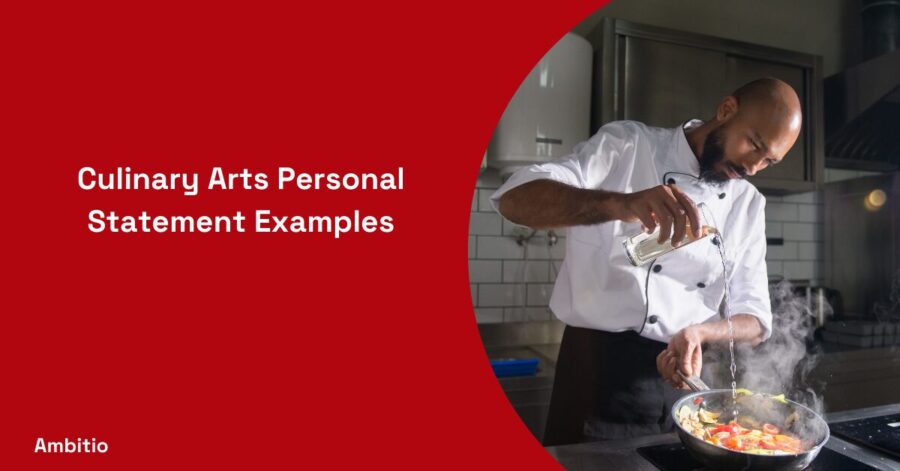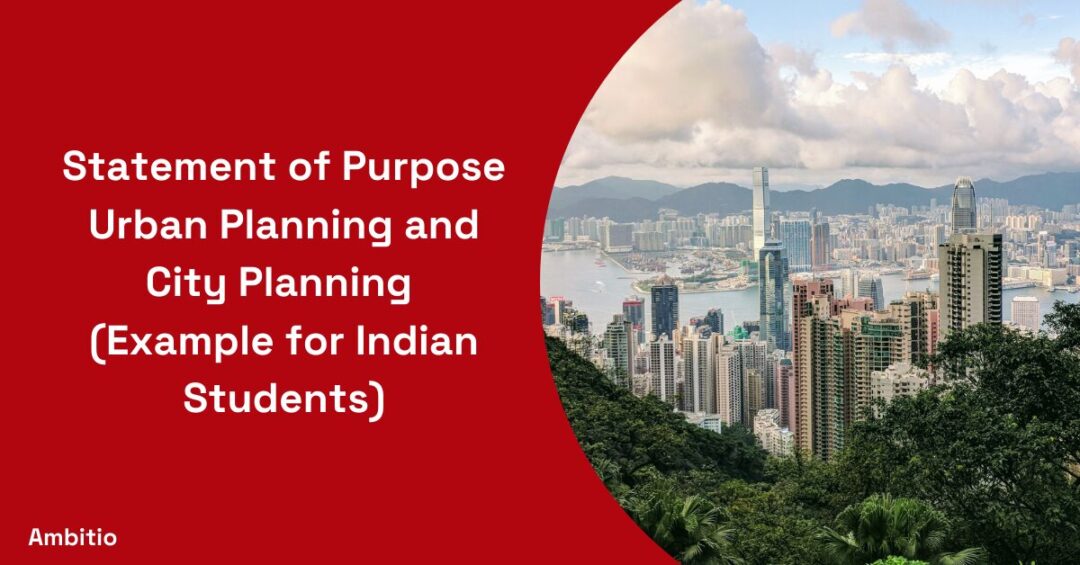12 December 2024
6 minutes read
Culinary Arts Personal Statement Examples: Your Recipe for Success in the Culinary World

When it comes to pursuing a career in the culinary arts, your personal statement is a critical ingredient in the recipe for success. It’s more than just a formality; it’s a platform to express your passion for food, share your culinary journey, and articulate your aspirations in the gastronomic world.
In this comprehensive guide, we’ll walk you through the essential steps and strategies to write an impactful culinary arts personal statement, with examples and tips to inspire and assist you in this creative endeavor.
Understanding the Role of a Culinary Arts Personal Statement
The Gateway to Your Culinary Dreams
A culinary arts personal statement is your first opportunity to make an impression on the admissions committee of a culinary school. It’s a narrative that paints a picture of your passion, dedication, and readiness to embark on a professional culinary journey.
This section of your application is where you can share your unique story, culinary experiences, and the driving forces behind your choice to pursue a career in this dynamic field.
Crafting a Story that Resonates
Your personal statement should be a well-crafted story that resonates with the reader. It’s not just about listing your achievements or experiences; it’s about weaving them into a narrative that showcases your enthusiasm for culinary arts.
Discuss the moments that ignited your passion for cooking, elaborate on experiences that shaped your culinary skills, and highlight any challenges you’ve overcome on your journey.
The Ingredients of a Compelling Culinary Personal Statement
- Passion for Culinary Arts: Convey your deep passion for cooking and food. This is the core ingredient of your statement, reflecting your enthusiasm and love for the culinary world.
- Personal Culinary Experiences: Include specific experiences that highlight your journey in the culinary field. These could be early cooking memories, significant dishes you’ve created, or moments that defined your culinary path.
- Skills and Techniques: Detail the culinary skills and techniques you’ve acquired. This showcases your practical knowledge and preparedness for advanced culinary education.
- Educational and Career Aspirations: Clearly articulate why you are pursuing a culinary arts program. Outline your career goals and how the program aligns with these aspirations.
- Unique Perspective or Style: Share your unique culinary perspective or style. This could relate to a specific cuisine, cooking philosophy, or an innovative approach to food preparation.
- Influential People or Experiences: Mention any influential chefs, mentors, or experiences that have shaped your culinary outlook. This can include internships, cooking classes, or inspirational figures in the culinary world.
- Challenges and Overcoming Them: Discuss challenges you’ve faced in your culinary journey and how you overcame them. This demonstrates resilience, problem-solving skills, and growth.
- Knowledge of Current Culinary Trends: Show that you are up-to-date with current trends and developments in the culinary field. This indicates your active engagement with the culinary community.
- Personal Qualities and Strengths: Highlight personal qualities and strengths that will aid you in your culinary career, such as creativity, attention to detail, teamwork, or leadership.
- Academic Achievements and Extracurricular Activities: Include any relevant academic achievements or extracurricular activities, especially if they relate to culinary arts or have helped develop skills useful in this field.
- Vision for the Future: Share your vision for what you hope to achieve in the culinary world. This could be opening a restaurant, contributing to food sustainability, or innovating in food science.
- Professionalism and Maturity: Convey a sense of professionalism and maturity in your writing. This shows that you are serious about your career and ready for the rigors of a culinary program.
Each of these ingredients plays a vital role in creating a compelling and holistic culinary personal statement, painting a full picture of your passion, experience, and readiness for a culinary arts program.
Connecting Your Past, Present, and Future in Culinary Arts
Reflecting on Past Experiences
Reflect on how your past experiences, whether in a professional kitchen, through travel, or in family cooking traditions, have shaped your culinary perspective.
Discuss any formative experiences that have contributed to your understanding of the culinary arts and how they have prepared you for the challenges of culinary school.
Present Skills and Aspirations
Detail your current culinary skills, techniques you have mastered, and areas where you wish to grow. Express your aspirations within the culinary field, be it as a chef, food stylist, or culinary educator.
This is where you showcase your present capabilities and your eagerness to expand them through formal education.
Envisioning Your Culinary Future
Envision your future in the culinary world. Where do you see yourself after completing your culinary education? Whether it’s opening a restaurant, specializing in food sustainability, or contributing to culinary literature, articulate your long-term goals and how the culinary program will help you achieve them.
Strategies for Writing an Impactful Culinary Personal Statement
- Start with a Hook: Begin your statement with a compelling anecdote, a vivid description of a memorable culinary experience, or a powerful statement that reflects your passion for culinary arts. This initial hook should captivate the reader’s interest right away.
- Tell Your Unique Story: Everyone has a unique culinary journey. Share yours by highlighting experiences that shaped your passion for cooking and food. This could include early cooking memories, influential people in your culinary life, or a specific event that solidified your decision to pursue culinary arts.
- Show, Don’t Just Tell: Use descriptive language to bring your experiences to life. Instead of just stating that you love cooking, describe the sensations, emotions, and experiences that cooking evokes for you. Make the reader feel your passion through your words.
- Link Past Experiences to Future Goals: Clearly illustrate how your past experiences have prepared you for a career in culinary arts. Then, connect these experiences to your future goals. Explain how the culinary program you are applying for will help you achieve these goals.
- Highlight Your Skills and Achievements: Mention any relevant skills, courses, or achievements that make you a strong candidate for the culinary program. This could include cooking competitions, relevant work or internship experiences, or any special training you have undergone.
- Reflect on Challenges and Learnings: Discuss any challenges you have faced in your culinary journey and what you have learned from them. This can demonstrate resilience, a willingness to learn, and an ability to adapt – all important qualities in the culinary field.
- Be Authentic and Honest: Write in your own voice and stay true to yourself. Authenticity is key in a personal statement. Don’t try to be someone you’re not; instead, let your genuine interest and passion for culinary arts shine through.
- Show Awareness of the Culinary Field: Demonstrate your understanding of the culinary world. This could be through mentioning current trends, notable chefs, or significant culinary movements. It shows that you are informed and serious about your career choice.
- Keep It Structured and Clear: Organize your statement in a clear, logical manner. Start with an introduction, follow with the body where you delve into your story and experiences, and conclude by tying everything back to your culinary aspirations.
- End with a Strong Conclusion: Your conclusion should reinforce your passion and readiness for a culinary career. Summarize your main points and end on a note that leaves a lasting impression on the reader.
- Proofread and Edit: Ensure your statement is free from grammatical errors and typos. A well-written, error-free personal statement reflects your attention to detail and professionalism.
- Seek Feedback: Before finalizing your statement, get feedback from mentors, teachers, or professionals in the culinary field. They can provide valuable insights and suggest improvements.
By incorporating these strategies, your culinary arts personal statement will not only demonstrate your passion and readiness for the culinary world but also stand out in a pool of applicants.
Finalizing Your Culinary Arts Personal Statement
Editing and Refining Your Statement
Once your first draft is complete, it’s time to edit and refine. Check for clarity, coherence, and conciseness. Ensure that your statement is free of grammatical errors and typos. It may be helpful to seek feedback from mentors, peers, or professionals in the culinary field.
Making Your Statement Stand Out
To make your statement stand out, infuse it with your personality and unique culinary perspective. Use vivid descriptions, expressive language, and specific examples to bring your culinary experiences and aspirations to life.
Remember, this is your chance to show the admissions committee why you are a perfect fit for their culinary program.
Conclusion
Crafting a culinary arts personal statement is an art in itself. It requires reflection, creativity, and a deep understanding of your culinary journey and aspirations.
By following the strategies and tips outlined in this guide, you can create a personal statement that not only meets the requirements of culinary schools but also captures the essence of your passion for the culinary arts.
Let your personal statement be the dish that leaves a lasting impression, showcasing your readiness to embark on a fulfilling culinary career.
FAQs
Q1: How long should my culinary arts personal statement be?
Typically, personal statements are about 500-1000 words, but always check the specific requirements of the culinary school you are applying to.
Q2: Can I include experiences unrelated to culinary arts in my personal statement?
Yes, if you can relate them to skills or qualities relevant to culinary studies, such as teamwork, creativity, or resilience.
Q3: Should I mention chefs or culinary figures who inspire me?
Absolutely! Mentioning figures like Jamie Oliver or referencing Michelin-starred restaurants can illustrate your understanding and appreciation of the culinary world.
Q4: How important is it to discuss specific culinary areas of interest in my statement?
It’s very beneficial to discuss specific interests, whether it’s a particular cuisine, baking technology, or food science, as it shows depth and direction in your culinary aspirations.

You can study at top universities worldwide!
Get expert tips and tricks to get into top universities with a free expert session.
Book Your Free 30-Minute Session Now! Book a call now




























